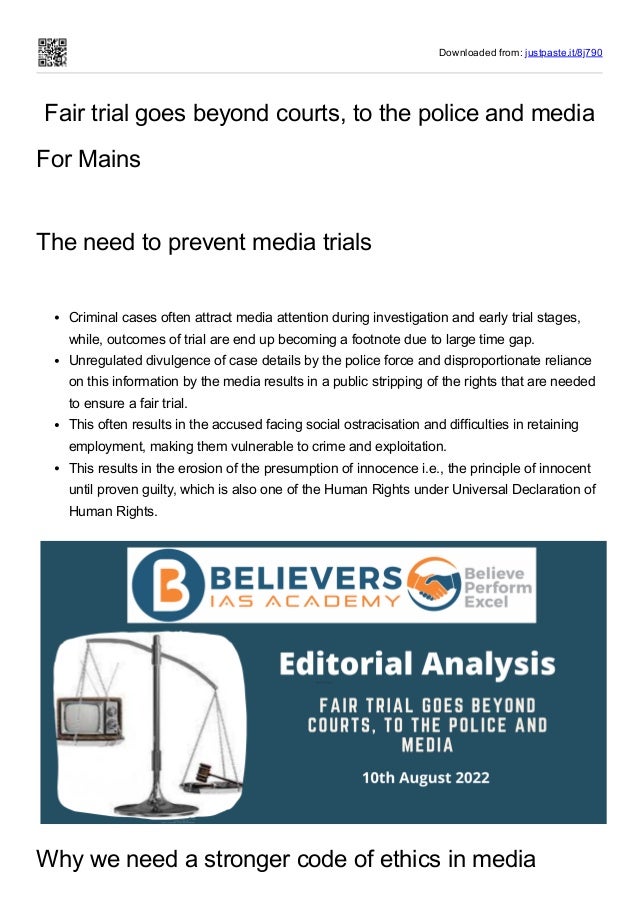Fair trial goes beyond courts, to the police and media.pdf
•
0 likes•3 views
Fair trial goes beyond courts, to the police and media
Report
Share
Report
Share
Download to read offline

Recommended
Recommended
More Related Content
More from DigitalBelieversIas
More from DigitalBelieversIas (19)
Fair trial goes beyond courts, to the police and media.pdf
- 1. Downloaded from: justpaste.it/8j790 Fair trial goes beyond courts, to the police and media For Mains The need to prevent media trials Criminal cases often attract media attention during investigation and early trial stages, while, outcomes of trial are end up becoming a footnote due to large time gap. Unregulated divulgence of case details by the police force and disproportionate reliance on this information by the media results in a public stripping of the rights that are needed to ensure a fair trial. This often results in the accused facing social ostracisation and difficulties in retaining employment, making them vulnerable to crime and exploitation. This results in the erosion of the presumption of innocence i.e., the principle of innocent until proven guilty, which is also one of the Human Rights under Universal Declaration of Human Rights. Why we need a stronger code of ethics in media
- 2. Due to media’s ability to shape political opinion, law enforcement agencies are sometimes under pressure to selectively reveal certain facets of the investigation or to mischaracterize incidents as communal or systemic. Courts have repeatedly directed law enforcement authorities not to reveal details of their investigations, especially the personal details of the accused, before trial is complete. Despite this, statutory restrictions on the police to maintain confidentiality are rare, with Kerala being one of the few States to have disallowed photographs of persons in custody under its Police Act. Apart from ensuring that police narratives are accurate before making them public, reporters also bear the burden of translating the significance of police versions in a criminal trial. Many reports mention “arrest” without any information about whether such arrests are conducted in the course of investigation or after filing of a charge sheet — an important indicator of the degree of certainty with which the police can assert the claim that they are indeed criminals. Current media regulation is limited, and while it is indeed needed to ensure a free media the issue is that Government regulation is not uniform for print and television media and enforcement of these regulations, where it occurs, is slow. Self-regulation set-ups such as the National Broadcasting Standards Authority and Indian Broadcasting Foundation are membership-based and easily avoided by simply withdrawing from the group. For more Click here and visit for Best IAS Coaching in Bangalore